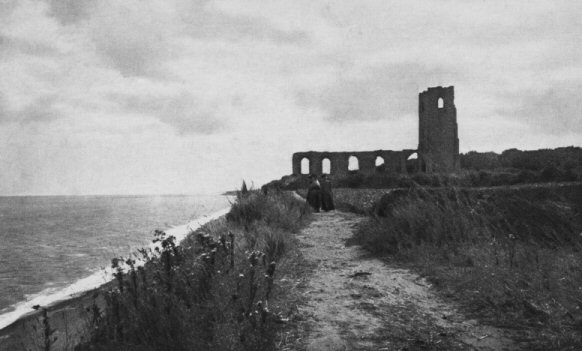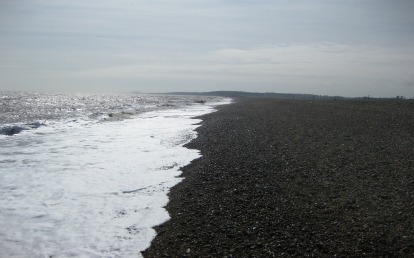Tag: england
-

A History of Dunwich: The Second Installment
When Daniel Defoe visited Dunwich in the 1720s he noted that “fame reports that once they had fifty churches in the town; I saw but one left, and that not half full of people”. Fame had exaggerated, but the fall from grace was stark. For Defoe, the ruin of Dunwich was particularly poignant because it had been brought about not by human folly but by natural causes. To him, the downfall of once great cities lacked the tragedy of the downfall of Dunwich: “The ruins of Carthage, of the great city of Jerusalem, or of ancient Rome, are not at all wonderful to me. The ruins of Nineveh, which are so entirety sunk as that it is doubtful where the city stood; the ruins of Babylon, or the great Persepolis, and many capital cities, which time and the change of monarchies have overthrown, these, I say, are not at all wonderful, because being the capitals of great and flourishing kingdoms, where those kingdoms were overthrown, the capital cities necessarily fell with them; but for a private town, a seaport, and a town of commerce, to decay, as it were, of itself (for we never read of Dunwich being plundered or ruined by any disaster, at least, not of late years); this, I must confess, seems owing to nothing but to the fate of things, by which we see that towns, kings, countries, families, and persons, have all their elevation, their medium, their declination, and even their destruction in the womb of time, and the course of nature.” For those in low-lying coastal regions, the battles and concerns of great civilisations are more often than not offset by the battle to prevent your family drowning. In this, the Suffolk coast shares a concern with the coastal communities of the Netherlands. The Dutch province of Zeeland lies below sea level. Its flag shows a lion emerging from the water (half of the lion is still in the water, so there is a suggestion that it could still drown) and its motto is “I struggle and emerge”, which leaves you in no doubt as to what the primary concern was for the people of the province. One folk tale from Zeeland, “The mermaid of Westenschouwen”, tells of fishermen who catch a mermaid in their nets. She is brought back to land and everyone in the town marvels at her. But her merman husband misses his mermaid and every day his voice can be heard calling for her, telling the people of the town he wants her back. Unlike Tom Hanks in Splash, the fishermen refuse to return the mermaid and they are shouted at one last time by the mermaid’s husband:
-

Dunwich: The Town That Keeps Falling Into The Sea
There was once a perfectly placed natural harbour at Dunwich but, while there was a Roman outpost there, it wasn’t until around 630 AD, when Saint Felix came bounding over from France holding the…